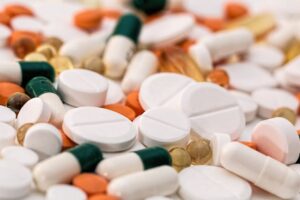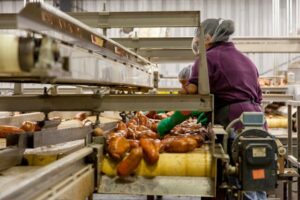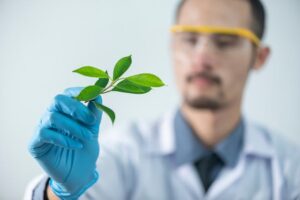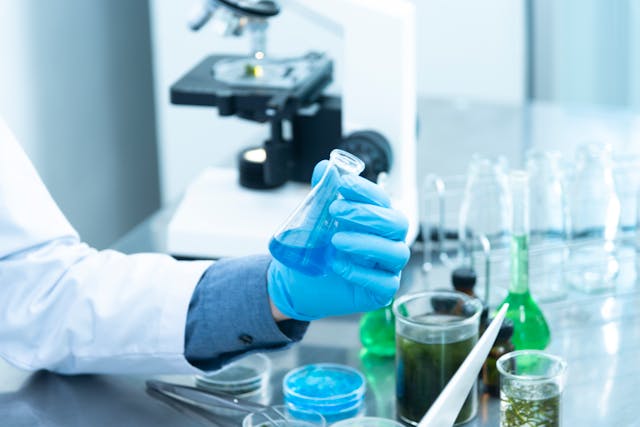Chromatography Explained: Types, Applications, and Importance in Modern Industries
Have you ever wondered how scientists separate different substances in a mixture? If so, you’re in the right place! Today, we’re diving into the fascinating world of chromatography. Chromatography is a powerful analytical technique used across various industries to isolate and identify components of mixtures – Think of it as a scientific sorting hat, but instead of picking your Hogwarts house, it’s sorting chemicals—no magic wands needed!
Whether you’re curious about its applications or the different types available, this guide will break it all down for you in simple terms. So, let’s get started!
What is Chromatography?
Chromatography is a method used to separate and analyse complex mixtures. The basic principle involves passing a mixture through a stationary phase while a mobile phase moves with it. Different components of the mixture interact with the stationary phase to varying degrees, leading to their separation as they travel at different rates.
Stationary Phase: This is the material that stays fixed in place. It can be a solid or a liquid that coats a solid.
Mobile Phase: This can be a liquid or gas that carries the mixture through the stationary phase.
The interaction between the components of the mixture and the stationary phase is what enables their separation. Chromatography is widely used in research laboratories, quality control, and even forensic analysis.
Types of Chromatography
1. Gas Chromatography (GC)
Gas chromatography involves a gas as the mobile phase and is primarily used for volatile substances. It’s commonly used in:
Environmental Testing: Analysing air samples for pollutants.
Food Quality Control: Determining the flavour compounds in food products.
2. Liquid Chromatography (LC)
Liquid chromatography uses a liquid mobile phase and is versatile for a wide range of applications. Types include:
High-Performance Liquid Chromatography (HPLC): Used for pharmaceuticals and food analysis.
Reversed-Phase Chromatography: Separating non-polar compounds from polar ones, often used in biochemistry.
3. Thin-Layer Chromatography (TLC)
Thin-layer chromatography uses a thin layer of stationary phase on a flat surface. It’s a simple and cost-effective technique, often used for:
Quick Analysis: Identifying compounds in a mixture.
Purity Testing: Checking the purity of compounds by comparing to known standards.
4. Ion Chromatography (IC)
Ion chromatography is used to separate ions and polar molecules based on their affinity to the ion exchanger. It’s particularly useful for:
Water Analysis: Measuring ionic contaminants in water.
Environmental Monitoring: Analysing soil and sediments for ionic substances.
5. Affinity Chromatography
This specialised type of chromatography is used to isolate specific biomolecules, such as proteins or nucleic acids, by exploiting specific interactions. It’s widely used in:
Biotechnology: Protein purification.
Biochemistry: Studying enzyme-substrate interactions.
6. Supercritical Fluid Chromatography (SFC)
Supercritical fluid chromatography uses supercritical fluids, such as carbon dioxide, as the mobile phase. It combines properties of both gas and liquid chromatography and is beneficial for:
Separation of Thermally Sensitive Compounds: Often used in the pharmaceutical industry for drug analysis.
Applications of Chromatography

1. Pharmaceutical Industry
In the pharmaceutical sector, chromatography plays a crucial role in drug development and testing. It is used to:
Purify Compounds: Ensuring that active pharmaceutical ingredients are free from impurities.
Quality Control: Testing the final products for compliance with safety and efficacy standards.
Drug Formulation: Assisting in the development of new drugs by analysing chemical properties and interactions.
Because no one wants their medicine to have a mystery ingredient, right? “Surprise side effects” isn’t a game we want to play!

2. Food & Beverage Industry
In the food and beverage sector, chromatography helps ensure safety and quality:
Additive Analysis: Testing for artificial additives and preservatives.
Flavour Profiling: Analysing the chemical composition of flavours and fragrances.
Nutritional Content: Determining the levels of vitamins, minerals, and other nutrients in food products.

3. Environmental Testing
Chromatography is essential for monitoring pollutants in the environment
Water Analysis: Detecting harmful substances in drinking water.
Soil Testing: Identifying contaminants in soil samples.
Air Quality Monitoring: Analysing air samples for pollutants and volatile organic compounds (VOCs).

4. Forensic Science
In forensic labs, chromatography aids in solving crimes:
Toxicology: Analysing bodily fluids for drugs or toxins.
Drug Testing: Identifying illegal substances in evidence collected from crime scenes.
Ink and Dye Analysis: Comparing inks from documents to determine authenticity.

5. Clinical Research
Chromatography is widely used in clinical settings to:
Analyse Biological Samples: Measuring the concentration of drugs in blood or urine.
Biomarker Discovery: Identifying potential biomarkers for diseases through metabolic profiling.
Chromatography is a vital technique in various industries, from pharmaceuticals to environmental testing. Its ability to separate and analyse complex mixtures makes it indispensable for ensuring quality, safety, and compliance. Whether you’re working in a lab or just curious about science, understanding chromatography gives you insight into the methods that underpin many modern technologies.
Ready to enhance your chromatography capabilities? Explore our comprehensive range of specialized laboratory equipment tailored for chromatography applications on smartlabtech.com Whether you need instruments for purification, analysis, or quality control, we have the right solutions for your needs. If you have any questions or need expert guidance in choosing the best equipment for your projects, reach out to us today at marketingsupport@smartlabtech.net —or give us a call at 72888 88016 – we’re here to support your chromatography journey!
